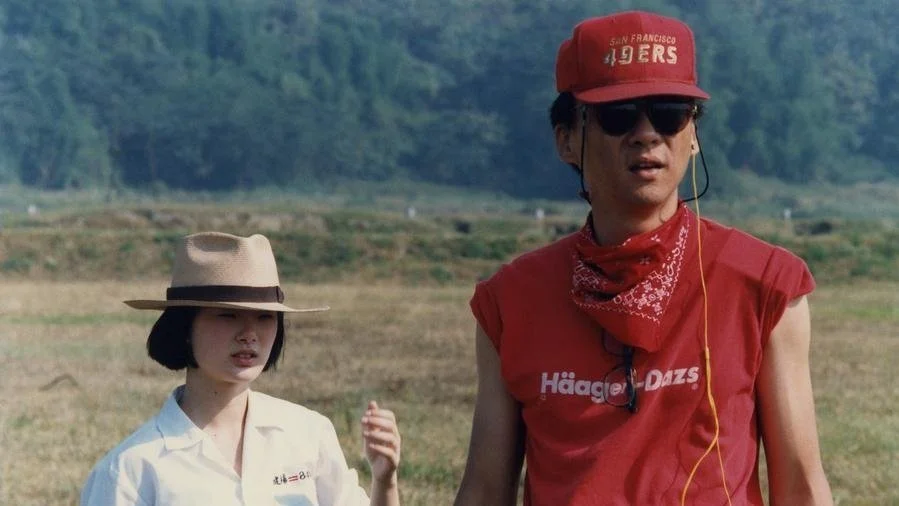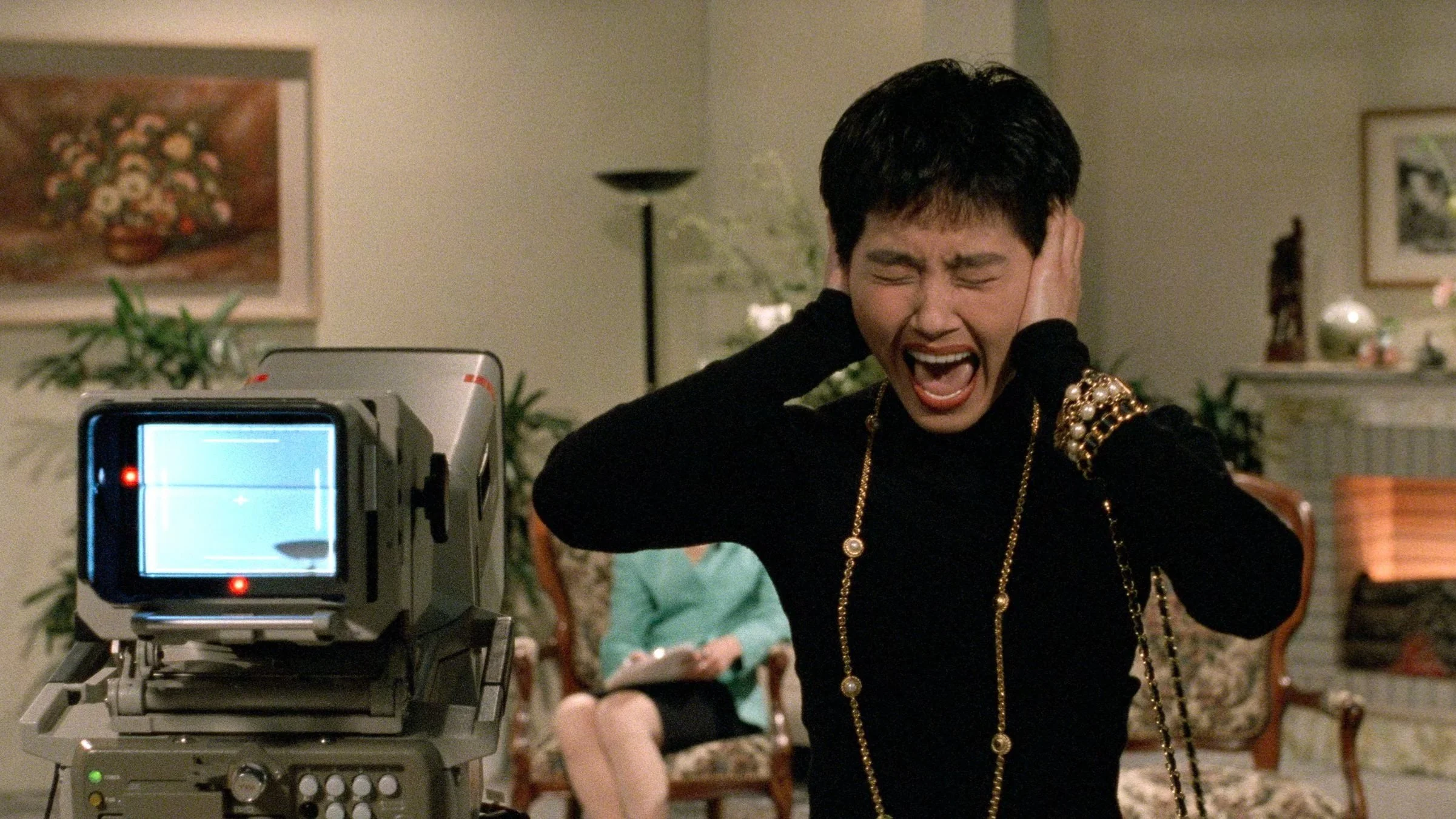Discovering Taiwan’s ‘New Cinema’ Through Edward Yang
By Evan Bower, Sr. Programming Coordinator
Even if you haven’t seen Edward Yang’s films, there’s a good chance you’ve absorbed some of his images — a young boy eating a Happy Meal beside his exhausted father, a couple’s silhouettes backlit by a neon Fujifilm sign.
These portraits of an encroaching corporate presence speak to a truth palpable in just about any of the world’s urbanized centres. But as the 20th century came to a close, Yang and his New Taiwanese Cinema cohort were helping define a nation in real-time during an era of unprecedented change.
At AIFF this year, we’re proud to present free retrospective screenings of two of Yang’s landmark films — A Confucian Confusion (1994), his beguiling mid-career comedy, and Yi Yi (2000), his career-defining masterwork. Together, these films showcase the versatility of one of cinema’s surest hands, and introduce viewers to a film movement that finds new ways, even still, to speak to life as we live it now.
Between the 1960s and ‘80s, Taiwan’s “economic miracle” transformed Taipei into a complicated network of skyscrapers, and saw it rise to its current standing among the world’s richest cities. Meanwhile, its people were still searching for a cultural identity distinct from mainland China following their separation in 1949.
They were fortunate, then, to have no fewer than three film geniuses-in-the-making taking up their craft at precisely this moment — Yang, Hou Hsiao-hsien, and Tsai Ming-liang shortly after.
Though the combined output of the New Taiwanese filmmakers is robust and diverse, most if not all the hallmarks of the era are on display in Yang’s work. In his films, the tug-of-war between commercial forces and traditional values is an ongoing contest, and an endless source of friction in the homes, workplaces, and city spaces that make it into his frame.
Five features into his career, A Confucian Confusion (1994) was seen as an effervescent outlier in a filmography that otherwise leaned austere. Yang once described the film’s objective as “examining what is wrong with trying to head into the 21st century with a fourth-century B.C. ideology.”
It sees Yang experimenting with a more playfully satirical tone, and this personal wrestling match with his approach to art becomes text in the film: in it, a novelist finds fame in leaving “postmodern abstraction” behind and cynically pivoting to comedy, while another rejects his own mainstream successes to write lengthy downers in obscurity.
Elsewhere, the film predicts with troubling accuracy the blurring of our private and professional lives. Relationships are assessed in terms of potential gains, while work documents provoke something like emotional responses. “When I was reading your financial statements, I was moved,” one character says.
Six years later, Yang delivered Yi Yi, the family epic that would become his final film. He was diagnosed with cancer in July 2000, just two months after Yi Yi’s premiere earned him Best Director at Cannes and seemed poised to reshape his career.
The film marked a return to the quiet, formally rigorous mode of his earlier work, now with his newfound sense of play intact. It follows four members of the Jian family over the course of one year, as each tries to find some semblance of peace in an increasingly disorienting world.
After his death in 2007, rights issues within his estate tied up the majority of Yang’s films, each lost for a time before slowly re-emerging for public consumption. The 4K restoration of A Confucian Confusion, screening at AIFF this year, represents the return of one of the final missing pieces in his oeuvre, and as his lesser-known titles resurface, one gets the sense Yang’s placement in the film canon is still actively being determined.
“Calling Yi Yi a three-hour Taiwanese family drama is like calling Citizen Kane a film about a newspaper,” wrote British critic Nigel Andrews, and over twenty years after its premiere, Yi Yi’s reputation is only growing. Just last week, IndieWire named it the second-best film of the 21st century.
Though Yang couldn’t have known Yi Yi would be his last release, it’s as close as we’ll get to a resolution to questions Taiwan’s New Wave had been asking for almost 20 years. It’s also, tragically yet undeniably, the work of an artist still bursting with stories to tell — one who brought a sensitivity and clarity of thought to filmmaking that hasn’t been matched since we lost him.
After our AIFF Classics screenings, check out these films to dig deeper into New Taiwanese Cinema:
TAIWANESE CINEMA BEFORE THE NEW WAVE
Dragon Inn (dir. King Hu, 1967)
A Touch of Zen (dir. King Hu, 1971)
NEW TAIWANESE CINEMA CLASSICS
In Our Time (dir. Edward Yang, Yi Chang, Ko I-Chen and Tao Te-Chen, 1982)
The Time to Live and the Time to Die (dir. Hou Hsiao-hsien, 1985)
A Brighter Summer Day (dir. Edward Yang, 1991)
Eat Drink Man Woman (dir. Ang Lee, 1994)
Goodbye, Dragon Inn (dir. Tsai Ming-liang, 2003)
THE WAVE’S INFLUENCE NOW, SCREENING AT AIFF THIS YEAR


